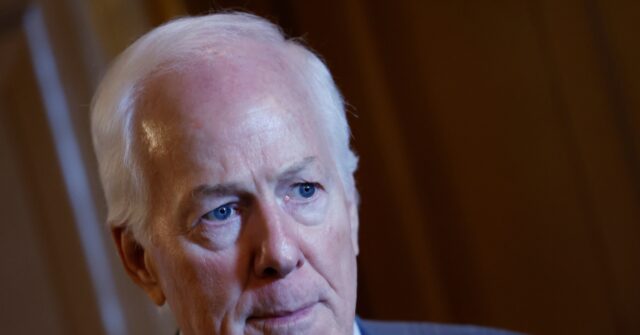In recent Senate developments, a notable power struggle emerged as Senator John Cornyn (R-TX), following a defeat in the leadership race to Senator John Thune (R-SD), attempted to bypass Senator Tom Cotton’s (R-AR) seniority to chair the Senate Intelligence Committee. The Senate traditionally values seniority in committee assignments, yet the Select Committee on Intelligence operates under different rules, emphasizing a bipartisan approach and the rotation of its leaders. The chairpersons for this committee are appointed by the party leaders, which adds a layer of complexity to Cornyn’s ambitions. As the selection process unfolds, the dynamics within the Republican Party are increasingly significant, with implications for future committee leadership.
In the aftermath of Cornyn’s leadership defeat, he is now angling to secure the Intelligence Committee chair following the reassignment of Senator Marco Rubio (R-FL) to lead the State Department. This forthcoming position would not only provide Cornyn with valuable authority in overseeing intelligence programs amid growing national security concerns but also serve to consolidate his standing within the party as he approaches his 2026 reelection campaign. However, Cotton’s internal backing from Senate Republicans and his own ascension as Senate Republican Conference Chair complicate Cornyn’s chances. Thune’s decision on who will fill the committee chair position remains crucial, potentially influenced by the party’s need to maintain unity and support from conservative factions ahead of the next election cycle.
The political maneuvers surrounding the Senate Intelligence Committee are illustrative of broader challenges Cornyn faces amid Texas’s evolving political landscape. He is expected to contend with a formidable primary challenge from Attorney General Ken Paxton, a Trump ally who may rally support from more conservative voters disenchanted with establishment Republicans. If Cornyn is appointed to chair the Intelligence Committee, it would solidify his incentive to pursue reelection, potentially staving off pressures from the conservative wing endorsing more radical candidates. Cornyn’s experience and relationships are presented as assets, which could sway Thune’s decision in favor of granting him the chairmanship despite Cotton’s claims.
Amidst these inter-party rivalries, Cotton is firmly positioning himself as the frontrunner for the Intelligence Committee, actively preparing for the role, hiring staff, and coordinating with current chair Rubio. His commitment signals a determination not to be overshadowed by Cornyn’s aspirations—highlighting the contentious atmosphere within Senate Republican leadership. For Cornyn, this situation represents a critical juncture in his political career, especially since he has never held a committee chair despite his lengthy Senate tenure. In the wake of past leadership roles under Mitch McConnell (R-KY), these new challenges may redefine his influence moving forward.
Cornyn’s bipartisan reputation stems primarily from his involvement in key legislative efforts during the Biden administration, including successful negotiations on gun control and immigration reform. While these initiatives have garnered him praise across the aisle, they may not resonate as favorably within a Texas Republican primary electorate that increasingly rallies around more extreme conservative positions. As Trump’s influence continues to shape Republican ideology, the association with bipartisan compromises could risk alienating Cornyn from his party’s escalating right-wing factions. This tension sets the stage for potential conflict within the Republican base and could hinder Cornyn’s reelection efforts if he does not align more closely with the prevailing party sentiments.
The significance of the Senate Intelligence Committee cannot be understated, especially in the context of Trump’s ongoing critique of the intelligence community, which he claims to have unfairly targeted his administration. The upcoming Congress may witness heightened scrutiny and demands for reform within the intelligence apparatus, making the choice of committee leadership all the more crucial. The committee has historically been seen less as a mechanism for oversight and more as a protector of intelligence activities, a perception that reformers are keen to challenge. Ultimately, the fight for chairmanship becomes a microcosm of broader tensions within the Republican Party, navigating the balance of power between establishment figures and emerging conservative voices.
As this political drama unfolds, the outcomes of both Cornyn’s and Cotton’s ambitions for the Intelligence Committee may foreshadow larger shifts within the GOP. The dynamics at play could also influence how the intelligence community operates moving forward, particularly in the context of increased scrutiny and demands for accountability. With growing calls for reform stemming from both party lines, the decisions made in this leadership selection could resonate well beyond the Senate halls, ultimately shaping how intelligence is perceived and managed in the American political landscape. Ultimately, the stakes are high for all involved as the decisions made in this critical juncture will not only impact individual careers but also the ideological direction of the Republican Party as a whole.

